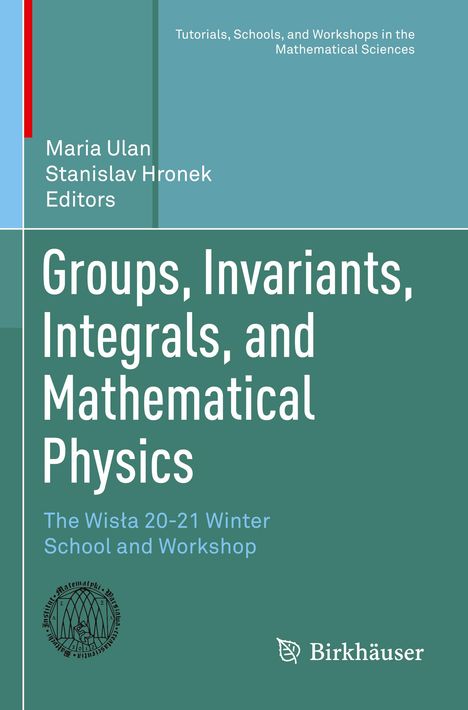Groups, Invariants, Integrals, and Mathematical Physics, Kartoniert / Broschiert
Groups, Invariants, Integrals, and Mathematical Physics
- The Wis¿a 20-21 Winter School and Workshop
(soweit verfügbar beim Lieferanten)
- Herausgeber:
- Stanislav Hronek, Maria Ulan
- Verlag:
- Springer Nature Switzerland, 06/2024
- Einband:
- Kartoniert / Broschiert, Paperback
- Sprache:
- Englisch
- ISBN-13:
- 9783031256684
- Artikelnummer:
- 11889100
- Umfang:
- 268 Seiten
- Nummer der Auflage:
- 2023
- Ausgabe:
- 2023
- Gewicht:
- 411 g
- Maße:
- 235 x 155 mm
- Stärke:
- 15 mm
- Erscheinungstermin:
- 2.6.2024
- Hinweis
-
Achtung: Artikel ist nicht in deutscher Sprache!
Weitere Ausgaben von Groups, Invariants, Integrals, and Mathematical Physics |
Preis |
|---|
Klappentext
This volume presents lectures given at the Wis¿a 20-21 Winter School and Workshop: Groups, Invariants, Integrals, and Mathematical Physics, organized by the Baltic Institute of Mathematics. The lectures were dedicated to differential invariants ¿ with a focus on Lie groups, pseudogroups, and their orbit spaces ¿ and Poisson structures in algebra and geometry and are included here as lecture notes comprising the first two chapters. Following this, chapters combine theoretical and applied perspectives to explore topics at the intersection of differential geometry, differential equations, and category theory. Specific topics covered include: The multisymplectic and variational nature of Monge-Ampère equations in dimension four Integrability of fifth-order equations admitting a Lie symmetry algebra Applications of the van Kampen theorem for groupoids to computation of homotopy types of striped surfaces A geometric framework to compare classical systemsof PDEs in the category of smooth manifolds
Groups, Invariants, Integrals, and Mathematical Physics is ideal for graduate students and researchers working in these areas. A basic understanding of differential geometry and category theory is assumed.

